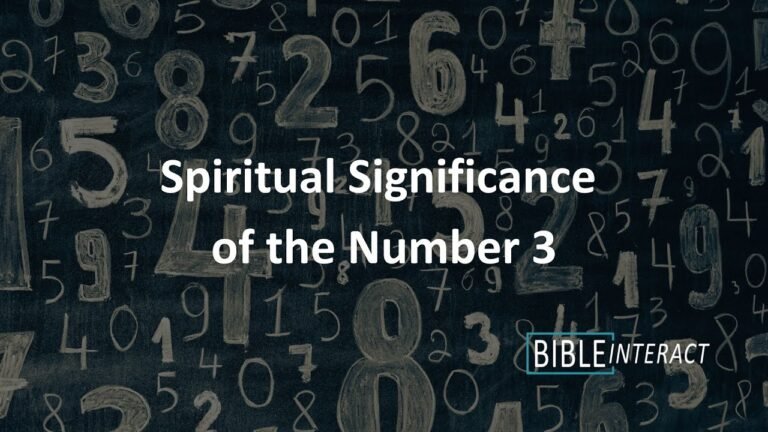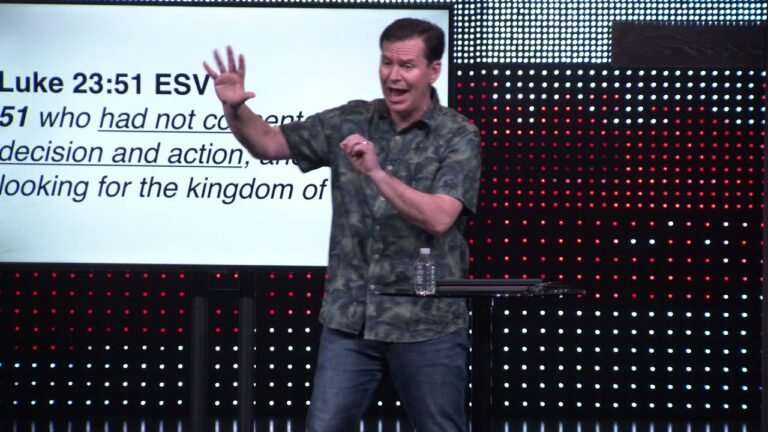Understanding the Meaning of Pentecostalism
The term Pentecostal holds significant meaning within the realm of Christianity, representing a vibrant and dynamic movement characterized by a deep emphasis on the Holy Spirit’s active presence. Originating from the early 20th century, Pentecostalism emphasizes spiritual experiences such as speaking in tongues, divine healing, and prophetic insights, fostering a passionate faith that resonates with millions worldwide. This article delves into the rich history, core beliefs, and cultural impact of Pentecostalism, illuminating its role in shaping contemporary religious practices and community life.
What are the core beliefs of Pentecostals?
Pentecostals hold a vibrant belief in the transformative power of the Holy Spirit, emphasizing that the presence of the Spirit indwells every person who is born again. This foundational experience marks the beginning of a believer’s spiritual journey, filled with the promise of guidance and empowerment. For Pentecostals, this relationship with the Holy Spirit is not just a passive presence; it is an active, dynamic force that enables Christians to live out their faith with passion and purpose.
Furthermore, Pentecostals advocate for a deeper experience known as being “filled with the Holy Spirit.” They encourage all believers to actively seek this filling, which is believed to enhance spiritual gifts and foster a more profound connection with God. This pursuit is central to their faith, as it empowers individuals to engage in worship, witness, and service with renewed vigor and enthusiasm, ultimately leading to a more impactful Christian life.
What distinguishes Pentecostals from other Christians?
Pentecostalism represents a vibrant branch of Christianity that prioritizes the active presence of the Holy Spirit in the lives of believers. This movement emphasizes a personal and transformative experience of faith, encouraging individuals to engage with God on a deeply emotional and spiritual level. Unlike many traditional Christian denominations, which may focus more on doctrine and ritual, Pentecostals seek a direct and tangible connection to the divine.
Central to Pentecostal belief is the concept of spiritual gifts, such as speaking in tongues, healing, and prophecy. These manifestations are viewed as evidence of the Holy Spirit’s work within the church and among its followers. This focus on experiential faith fosters a lively worship environment, characterized by enthusiasm, music, and communal participation, setting Pentecostal gatherings apart from more subdued worship styles.
The dynamic nature of Pentecostalism attracts a diverse range of individuals seeking a profound spiritual experience. As a result, this movement continues to grow globally, appealing to those who desire a faith that is not only intellectually engaging but also emotionally fulfilling. Through its emphasis on personal encounters with God, Pentecostalism offers a distinct approach to Christianity that resonates with many in today’s world.
What are the beliefs of Pentecostals?
Pentecostals adhere to a lifestyle that emphasizes purity and self-control, reflecting their commitment to spiritual values. “We don’t drink, smoke or participate in anything that would alter our conscience,” Kalli explained, highlighting the importance of maintaining a clear mind and a disciplined life. This focus on moral integrity is central to their beliefs, shaping daily habits and choices.
In addition to these general principles, Pentecostal women face specific guidelines that further define their faith. A notable rule is the prohibition against cutting hair, which is viewed as a symbol of a woman’s glory. This practice underscores the belief that hair holds spiritual significance, reinforcing the broader commitment to modesty and traditional values within the community.
Unpacking the Roots of a Spiritual Movement
At the heart of any spiritual movement lies a complex tapestry of beliefs, practices, and cultural influences that shape its identity. Understanding these roots requires a careful examination of historical contexts and the key figures who have contributed to its development. Often, these movements emerge in response to societal shifts, addressing the spiritual needs of individuals seeking meaning and community in an ever-changing world. By tracing the lineage of teachings and philosophies, we can uncover the foundational elements that resonate with adherents and inspire collective action.
As we delve deeper, we recognize that the intersection of tradition and innovation plays a critical role in the evolution of spiritual practices. Many movements draw inspiration from ancient wisdom while adapting to contemporary realities, creating a dynamic dialogue between past and present. This synthesis not only enriches the spiritual experience but also fosters inclusivity, inviting diverse voices to contribute to the ongoing narrative. The ability to integrate various cultural perspectives often enhances the movement’s appeal, allowing it to transcend geographical and social boundaries.
Ultimately, the vitality of a spiritual movement hinges on its capacity to connect with the human experience. At its core, it seeks to address fundamental questions of existence, purpose, and belonging. By exploring the roots of these movements, we gain insight into how they nurture personal growth and foster community, providing a sanctuary for individuals in search of deeper fulfillment. This journey into the past reveals not just the origins of a spiritual path, but also its potential to inspire transformative change in the lives of many.
Key Beliefs That Shape Pentecostal Faith
Pentecostal faith is deeply rooted in the belief of the Holy Spirit’s active presence in the lives of believers. This conviction emphasizes personal experience and relational intimacy with God, where the Holy Spirit empowers individuals to live out their faith dynamically. The manifestation of spiritual gifts, such as speaking in tongues and healing, is not merely seen as a historical occurrence but as a contemporary reality, encouraging practitioners to seek these experiences as vital components of their spiritual journey.
Another cornerstone of Pentecostalism is the emphasis on the authority of Scripture. Pentecostals uphold the Bible as the inspired Word of God, viewing it as the ultimate guide for faith and practice. This belief fosters a community that is not only passionate about biblical teachings but also engaged in active interpretation and application of Scripture in everyday life. The commitment to evangelism and sharing the Gospel is fueled by this scriptural foundation, urging believers to spread the message of hope and salvation.
Lastly, the concept of community plays a pivotal role in shaping Pentecostal beliefs. Fellowship among believers is encouraged through vibrant church gatherings where worship, prayer, and communal support thrive. This sense of belonging reinforces the importance of unity in faith, allowing individuals to grow spiritually while nurturing relationships that reflect the love of Christ. Together, these beliefs create a rich tapestry of faith that inspires Pentecostals to live out their convictions boldly and authentically.
The Role of Experience in Pentecostal Worship
Experience plays a pivotal role in Pentecostal worship, shaping the way congregants engage with their faith and one another. This dynamic form of worship emphasizes personal encounters with the divine, often characterized by spirited singing, spontaneous prayer, and the manifestation of spiritual gifts. Such experiences foster a deep sense of community and belonging, drawing individuals into a shared atmosphere of enthusiasm and emotional expression. As worshippers actively participate, they cultivate a profound connection not only with God but also with each other, reinforcing the idea that faith is not merely a set of beliefs but a lived reality enriched by communal experience.
Exploring the Global Impact of Pentecostalism
Pentecostalism has emerged as one of the fastest-growing movements within Christianity, profoundly influencing societies across the globe. Rooted in a passionate emphasis on personal experience and the Holy Spirit, this dynamic faith has transcended cultural and geographical boundaries. From bustling urban centers in Africa and Latin America to suburban communities in the United States, Pentecostal churches are not only reshaping spiritual landscapes but also driving social change. By addressing issues such as poverty, education, and health care, these congregations are becoming pivotal players in their communities, fostering hope and resilience among marginalized populations.
The global reach of Pentecostalism is underscored by its adaptability, allowing it to resonate with diverse audiences. Through vibrant worship, community engagement, and a focus on individual empowerment, Pentecostalism attracts millions seeking both spiritual fulfillment and practical support. As it intertwines with local cultures, the movement often sparks dialogues on morality, governance, and human rights, establishing itself as a significant force in the ongoing quest for social justice and equality. The transformation brought about by Pentecostal communities highlights the movement’s capacity to inspire change and foster a sense of belonging in an increasingly interconnected world.
Understanding the pentecostal meaning opens a window into a vibrant and dynamic faith that emphasizes personal experience and spiritual empowerment. This movement not only highlights the profound connection between believers and the divine but also showcases a commitment to community and outreach. As more individuals seek deeper spiritual fulfillment, the pentecostal tradition continues to inspire and transform lives, making its impact felt far beyond the walls of the church.







